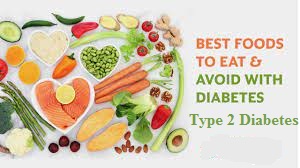Table of contents
Introduction
How a Vegetarian Lover’s Diet Safeguards Against Type 2 Diabetes
Cardiovascular disease remains the main cause of death
Key Nutrients in a Heart-Healthy Vegetarian Diet
Make the move: steps towards a plant-based diet
The General Well-being Capability of Veggie-Lover Diets
Introduction
Evidence is piling up that vegan diets prevent both these conditions; even diabetes and cardiovascular diseases (CVD) are rising in the world, a concern. By using an entirely plant-based diet along with nutrient-rich foods and fiber and avoiding animal fats, vegetarians usually lower their health risks. This pattern can balance glucose levels in the blood. It lowers cholesterol and reduces inflammation. These all count as critical weights in the management and reduction of risks associated with diabetes and heart conditions.
How Vegetarian-Lover Diets Safeguard Against Type 2 Diabetes
Tips to safeguard against type 2 diabetes:

Calorie densities and an abundance of whole-grain foods, fruits, and vegetables create a typical diet of vegans. This is all-inclusive of the fiber and nutrients necessary to balance blood sugar and improve the efficacy of insulin as necessary. Generally, these diets have low glycemic loads, and blood sugar spiking effects are less than those of diets rich in processed or red meat. It has been found that those on a plant-based diet generally consume less carbohydrate and are less likely (by up to 23 percent) to develop type II diabetes compared to animal product consumers.
“Fiber is especially significant in these weight control plans,” says Dr. Marcus Path, an endocrinologist, “as it eases back glucose retention, forestalling spikes in glucose that can prompt insulin resistance.” Veggie sweetheart swears off food and similarly lessens or forgoes “processed meats,” which have been associated with insulin resistance and aggravation, factors that contribute to the onset of diabetes.
Cardiovascular disease remains the main cause of death

Cardiovascular disease remains the main cause of death around the world, yet a plant-based diet can relieve many risk factors. Research by the American Heart Association shows that people who embrace a vegetarian or predominantly plant-based diet eat fewer carbs and have a 16% lower risk of developing cardiovascular disease. The rich fiber content in these eating regimens diminishes LDL cholesterol (as often as possible suggested as “horrendous” cholesterol), while plant foods rich in potassium and magnesium support healthy circulatory pressure levels.
“Plant-based consumers who consume fewer calories will generally have higher measures of cell reinforcements, which battle irritation connected to coronary illness, and solid fats from sources like nuts and seeds that assist with bringing down bad cholesterol,” notes Dr. Natalie Chang, a cardiologist. These supplements contribute to further developed heart well-being and decreased stress on the cardiovascular system.

Key Nutrients in a Heart-Healthy Vegetarian Diet

1. Fiber: Found in abundance in plant-based food sources. Fiber supports cholesterol levels by restricting cholesterol in the digestive system, forestalling its assimilation. It additionally dials back glucose retention, helping with glucose control.
2. Cancer prevention agents: Present in regular items, vegetables, and whole grains. Cell fortifications like carotenoids and flavonoids fight oxidative stress. It is an ally of both diabetes and coronary heart disease.
3. Sound Fats: Nuts, seeds, avocados, and olive oil are astonishing sources of unsaturated fats. It helps with cutting down LDL cholesterol levels and reducing plaque in the arteries.
4. Magnesium and Potassium: These minerals are plentiful in salad greens, vegetables, and whole grains. They help with managing heartbeat, reducing trouble in the heart and veins.
Make the move: steps towards a plant-based diet
Going vegan doesn’t have to be an overnight project. Not only focus on red meat, but also try to substitute beans and lentils. And bump up the volume of other vegetables, whole grains, nuts, and seeds to get a high-fiber diet. This will work wonders for improving one’s health.
“Beginning with a couple of sans meat days, seven days is a useful methodology,” recommends enrolled dietitian Lisa Chase. “Center on supplementing thick, fulfilling food varieties that are high in fiber and protein to keep you feeling full and empowered.”
The General Well-being Capability of Veggie-Lover Diets

Perceiving the capability of plant-based diets to consume fewer calories in decreasing the prevalence of persistent illnesses, well-being associations like the American Heart Association and American Diabetes Association encourage diets rich in organic products, vegetables, and whole grains as a component of a more comprehensive procedure for preventing diabetes and CVD. The diminished medical services costs related to these preventive advantages make vegan eats less carb-heavy and more beneficial for individual well-being as well as for society overall.
“Advancing plant-based eating can prompt critical upgrades in general well-being,” says Dr. Path. “With a shift toward vegan choices, we could see a decrease in medical care troubles connected with diabetes and coronary illness.”
Conclusion
Vegans consume fewer calories and offer a strong way to deal with forestalling type 2 diabetes and cardiovascular illness through their extraordinary blend of high fiber, essential nutrients, and absence of unhealthy fats found in animal products. By supporting better glucose levels, decreasing LDL cholesterol, and relieving irritation, plant-based diets provide a reasonable, evidence-based system for long-term well-being. As consciousness of these advantages develops, taking on a veggie lover diet might turn into an increasingly popular decision for people trying to safeguard their well-being and prosperity


Leave a Reply